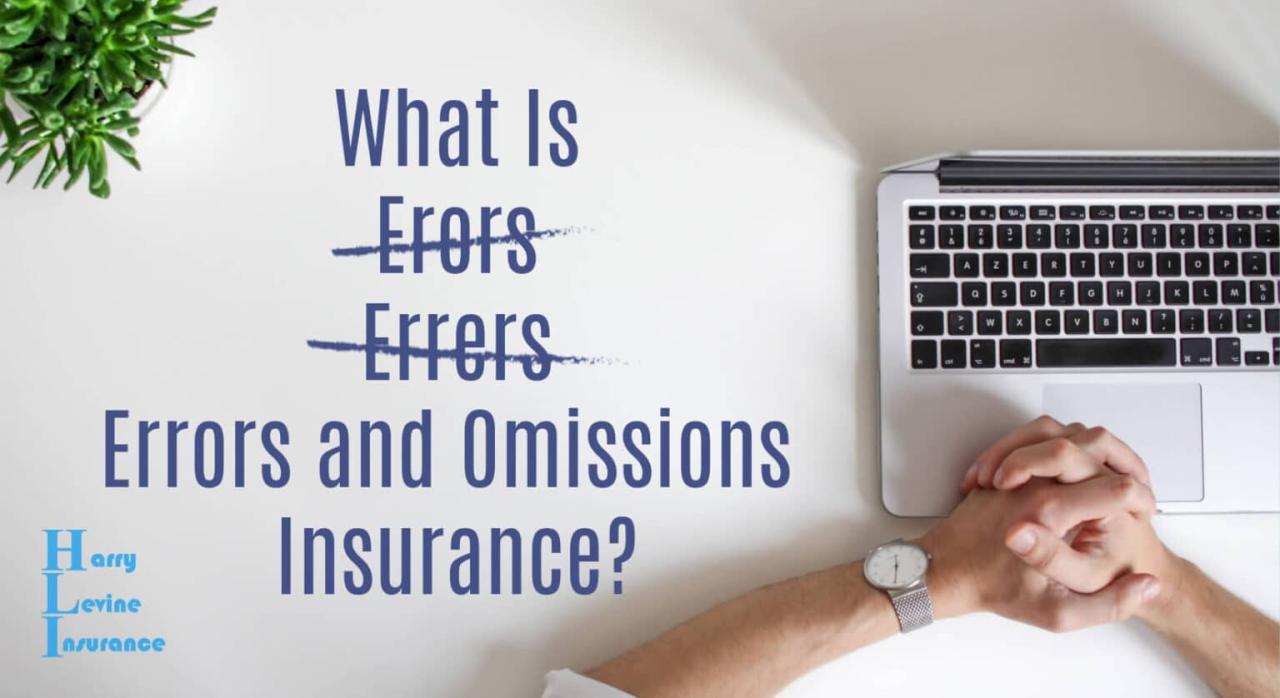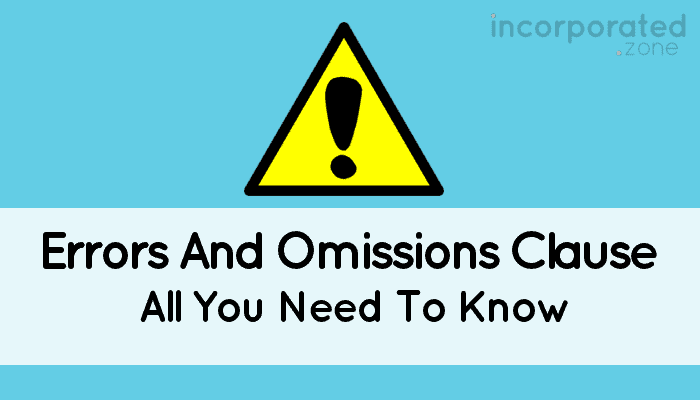Errors and omissions insurance for bookkeepers is a crucial aspect that safeguards their businesses from potential risks and liabilities. As we delve into this topic, readers will gain valuable insights into the importance of this insurance coverage in the bookkeeping industry.
The discussion will provide a comprehensive overview of the coverage details, costs, factors affecting premiums, claims process, and the significance of errors and omissions insurance for bookkeepers.
Overview of Errors and Omissions Insurance for Bookkeepers

Errors and omissions insurance, also known as professional liability insurance, is a type of coverage that protects bookkeepers from claims of negligence or mistakes in their work. This insurance is essential for bookkeepers as it provides financial protection in case a client accuses them of errors, omissions, or failing to deliver promised services.
Purpose of Errors and Omissions Insurance
Errors and omissions insurance safeguards bookkeepers against claims of professional negligence that may lead to financial losses. It covers legal fees, settlements, and judgments resulting from lawsuits related to mistakes made in their professional services.
- Failure to detect errors in financial statements
- Incorrect data entry that leads to financial discrepancies
- Providing inaccurate financial advice to clients
Importance of Errors and Omissions Insurance in the Bookkeeping Industry, Errors and omissions insurance for bookkeepers

Having errors and omissions insurance is crucial for bookkeepers to protect their reputation, finances, and business in the event of a lawsuit. It offers peace of mind and financial security, allowing bookkeepers to focus on their work without the constant fear of litigation.
Coverage Details
Errors and omissions insurance for bookkeepers typically covers legal defense costs, settlements, and judgments arising from claims of professional negligence. Different coverage options may include:
Types of Coverage
- Professional liability coverage
- Legal defense coverage
- Copyright infringement coverage
Scenarios Where Coverage Comes into Play

- A client sues a bookkeeper for providing inaccurate financial advice that results in significant financial losses.
- A bookkeeper is accused of failing to detect errors in financial statements, leading to legal action by the client.
- Legal fees are incurred when a bookkeeper is sued for copyright infringement related to financial reports.
Cost and Factors Affecting Premiums
The cost of errors and omissions insurance for bookkeepers is influenced by factors such as the bookkeeper’s experience, claims history, coverage limits, and the type of services offered. Bookkeepers can potentially reduce their insurance costs by maintaining a clean claims record, investing in risk management practices, and comparing quotes from different insurance providers.
Factors Affecting Premiums
- Claims history
- Type of services offered
- Coverage limits
Tips to Reduce Insurance Costs
- Implement risk management strategies to minimize potential lawsuits.
- Review and update your coverage regularly to ensure it meets your business needs.
- Seek quotes from multiple insurance providers to find the most competitive rates.
Claims Process
In the event of a claim, bookkeepers need to follow a specific process to ensure a smooth experience:
Steps for Filing a Claim
- Notify your insurance provider as soon as a claim arises.
- Provide all necessary documentation and information to support your claim.
- Cooperate with the claims adjuster and legal team throughout the process.
Common Challenges During the Claims Process
- Delays in claim processing
- Disputes over coverage terms
- Unforeseen legal complications
Best Practices for Bookkeepers
- Maintain detailed records of client interactions and services provided.
- Stay informed about changes in regulations and industry standards.
- Work closely with your insurance provider to ensure timely and accurate claims processing.
Importance of Errors and Omissions Insurance for Bookkeepers
Errors and omissions insurance is a critical investment for bookkeepers as it protects their business, reputation, and financial stability. Real-life examples have shown how this type of insurance can save bookkeepers from costly legal battles and financial losses. In the long run, errors and omissions insurance provides peace of mind and security, allowing bookkeepers to focus on delivering quality services to their clients.
Final Review
In conclusion, errors and omissions insurance stands as a vital shield for bookkeepers, offering financial protection and peace of mind in their professional endeavors. Understanding the nuances of this insurance can pave the way for a secure and thriving bookkeeping business.
Top FAQs: Errors And Omissions Insurance For Bookkeepers
What is the purpose of errors and omissions insurance for bookkeepers?
Errors and omissions insurance aims to protect bookkeepers from financial losses resulting from mistakes or negligence in their professional services.
How can bookkeepers reduce their insurance costs?
Bookkeepers can potentially reduce their insurance costs by maintaining a good track record, implementing best practices, and seeking advice from insurance experts.
What factors can affect premiums for errors and omissions insurance?
Factors such as the bookkeeper’s experience, claim history, coverage limits, and the size of their business can impact the premiums for errors and omissions insurance.
